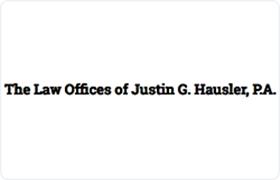Tangerine RICO Act Lawyer, Florida
Sponsored Law Firm
-
 x
x

Click For More Info:
-
The Law Offices of Justin G. Hausler, P.A.
5570 South US Highway 17-92 Casselberry, FL 32707» view mapCriminal Defense Because Your Case Matters
As a Former Prosecutor, Justin G. Hausler has a wealth of jury trial experience and offers representation regarding all misdemeanor and felony charges.
407-617-1064
Not enough matches for Tangerine RICO Act lawyer.
Below are all Tangerine Criminal lawyers.
FREE CONSULTATION
CONTACTChristopher R. Largey
Admiralty & Maritime, DUI-DWI, Criminal, Personal Injury, Car Accident
Status: In Good Standing Licensed: 26 Years
Christopher Robert Largey
Mass Torts, Federal Trial Practice, Criminal, Civil Rights, Personal Injury
Status: In Good Standing
Patrick Noll Harris
Education, White Collar Crime, DUI-DWI, Criminal
Status: In Good Standing Licensed: 33 Years
Charles David Fantl
Other, Federal Appellate Practice, Family Law, Criminal, Accident & Injury
Status: In Good Standing
Andrew C Colando
Landlord-Tenant, Traffic, Divorce, Criminal
Status: In Good Standing Licensed: 45 Years
Gregory John Panzo
Federal Trial Practice, Criminal, Civil Rights, Personal Injury
Status: In Good Standing
 Justin Hausler Casselberry, FL
Justin Hausler Casselberry, FL AboutThe Law Offices of Justin G. Hausler, P.A.
AboutThe Law Offices of Justin G. Hausler, P.A. Practice AreasExpertise
Practice AreasExpertise
